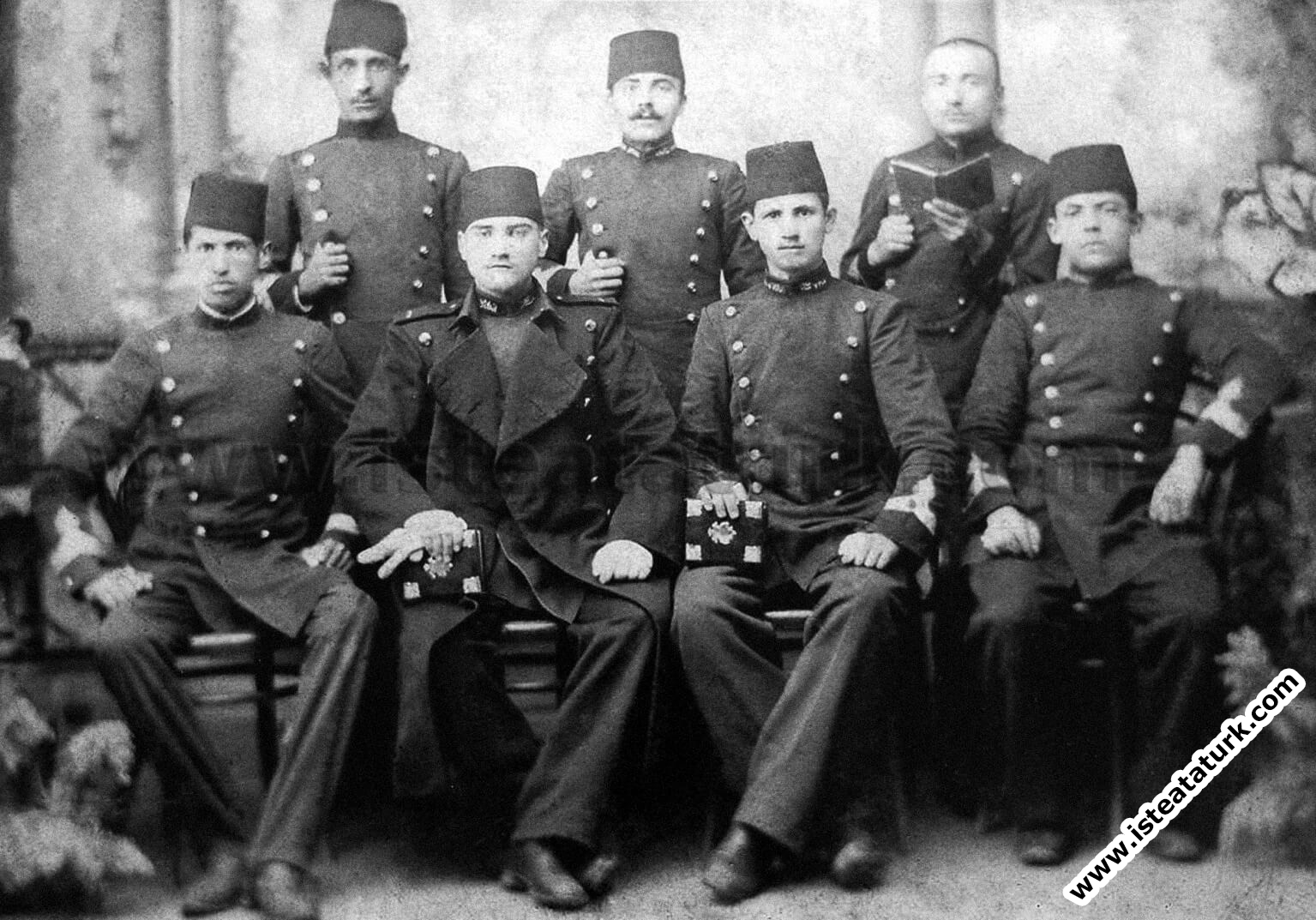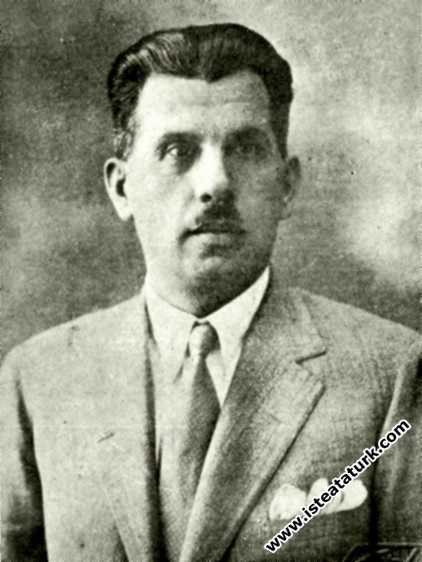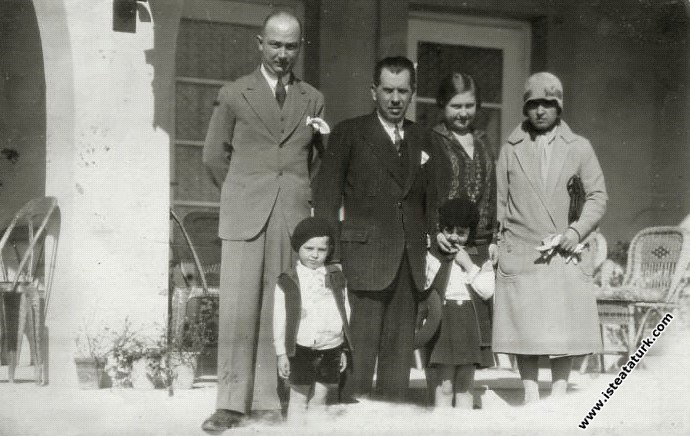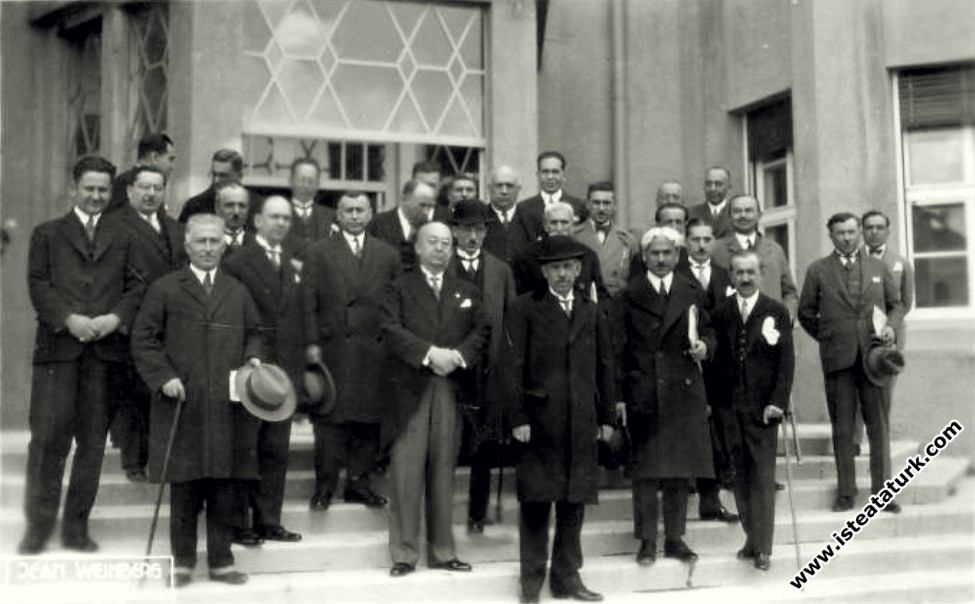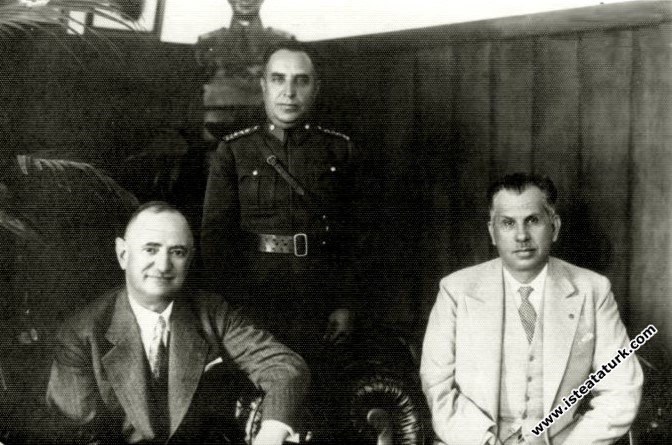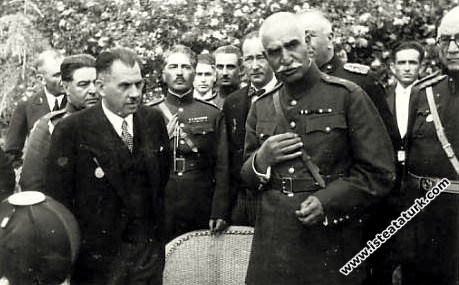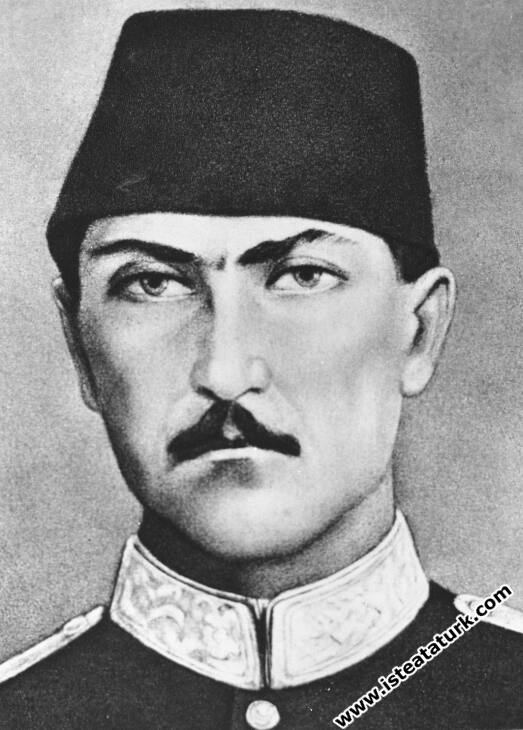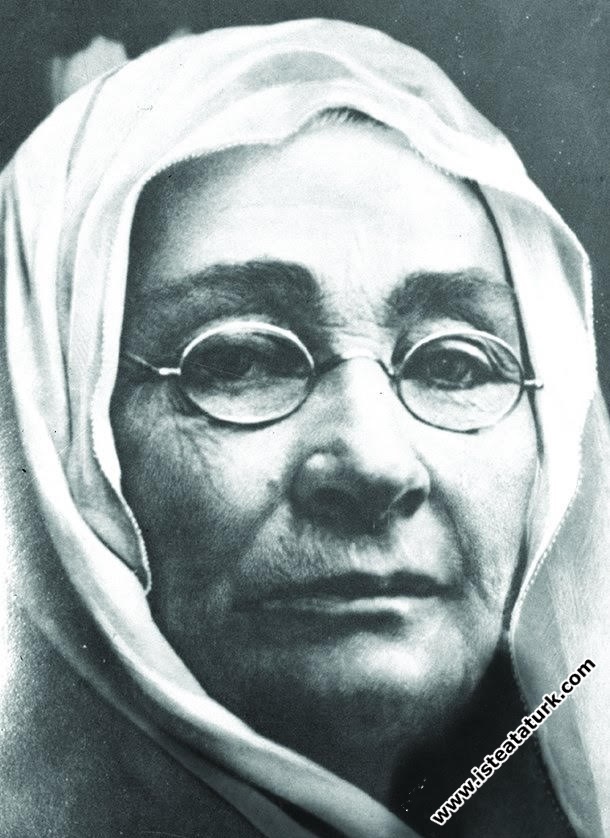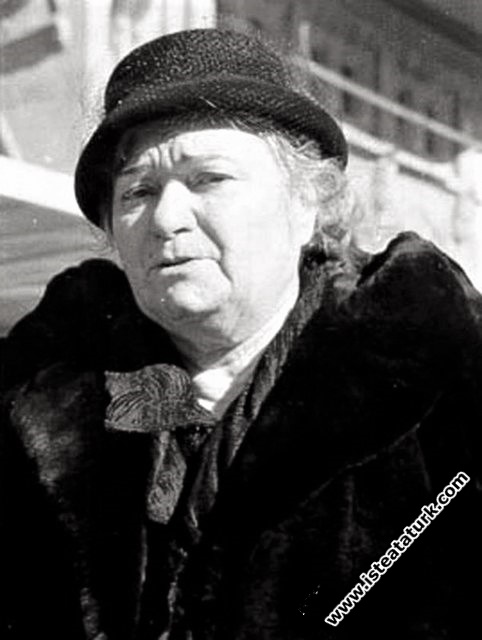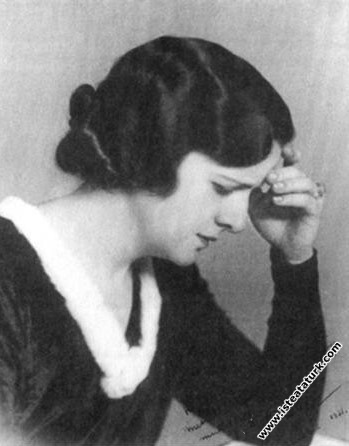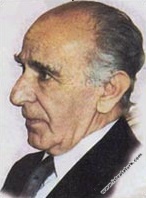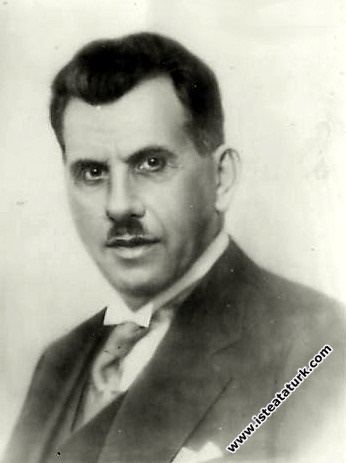
Kâzım Özalp
Character Size
Life of Kâzım Özalp
KAZIM ÖZALP (1882-1968)
During the Turkish War of Independence and the revolutions, we see certain figures standing next to and against Gazi Mustafa Kemal Atatürk. Some of his friends, who were right next to him and with whom he started the National Struggle, broke away from his environment one by one as certain stages of the struggle developed and stood against him and opposed him. At the beginning of the great Speech, Atatürk describes his judgment on these people very well, while addressing the purpose and scope of the Turkish Revolution1.
Alongside those who unconsciously oppose him, he understood him very well and believed that he would lead the Turkish nation to salvation by accomplishing great things; For this reason, there are people who have been a great support in the provision of national unity and integrity by creating a steel wall around it. Undoubtedly, Kazım Pasha (Özalp) is one of the great commanders and statesmen such as İsmet Pasha (Inönü) and Fevzi Pasha (Çakmak), whose name and deeds are too great to be forgotten. Kazım Pasha, both his military genius, his high patriotism and his devotion to the revolution; Besides, in terms of his great statesmanship, he created such a trust and confidence in Mustafa Kemal Atatürk; While Atatürk was talking about the Battle of the Commander-in-Chief, the heroic Turkish Army said, Connecting his victory, which defeated the cruel and proud Greek Army, to the sense of duty, patriotism and common thought of the commanders, he says: “Indeed, I had the conviction that our army would achieve such a devastating result. I have to mention with the utmost respect and devotion that one of these individuals who joined me with the same strength and conviction is the Honorable Chief of General Staff, Fevzi Pasha. The other is Ismet Pasha, the Commander of the Western Front, and the third is His Holiness Kazım Pasha, the Deputy of the National Defense2. One of these individuals who joined me with the same strength and conviction is the Honorable Chief of the General Staff, Fevzi Pasha. The other is Ismet Pasha, the Commander of the Western Front, and the third is His Holiness Kazım Pasha, the Deputy of the National Defense2. One of these individuals who joined me with the same strength and conviction is the Honorable Chief of the General Staff, Fevzi Pasha. The other is Ismet Pasha, the Commander of the Western Front, and the third is His Holiness Kazım Pasha, the Deputy of the National Defense2.
Kazım Özalp was born on February 17, 1882 in Köprülü (Titov Veles). He is the eldest of nine sons of Manastırlı İsmail Nazmi Bey and Yıldız Hanım, who is an officer who is also devoted to his homeland with great affection. Kazım Özalp, who opened his eyes to the world in the home environment of an officer family, became interested in the military profession as he got older. In fact, this request was valid for many Turkish children who wanted to study in Ottoman society for that period. For this reason, Kazım Özalp, who was first sent to Skopje Military High School, continued this secondary school with great enthusiasm and successfully completed it. After that, he continued to Manastır Military High School. On March 1, 1900, however, He was enrolled in the Military Academy in Istanbul3. He graduated from this school, which was the most respected of his time, as an “excellent captain” with a brilliant degree; He started his first duty under the command of the 5th Army4.
The years when he started his military service were the years when the Ottoman Empire experienced great military, social and economic difficulties. In particular, the unrest in the Balkans and the associated committee movements brought the central government face to face with great difficulties. In addition to the large pieces of land that the Ottoman Empire lost, the rebellion movements of the Bulgarian and Albanian gangs against the central government in the Balkans, in particular, aroused hopelessness and disappointment in many sections. Especially the Military Academy students and newly graduated officers were worried about this bad picture of the country and thought that it was necessary to stop this trend. Therefore, we see them fighting with great enthusiasm against the komitaci. As a young officer, Kazım Özalp, who has devoted himself to the happiness and survival of his country, has also tried to fulfill the duties given to him in the best way, regretting the bitter fate of his country; He fought with great enthusiasm against the Bulgarian gangs in Gevgili and Menlik. However, the tyrannical regime implemented by the central government and the policy mistakes it exhibited one after the other also created some disappointments in him. Kazım Bey, who thought that something must be done, joined the Committee of Union and Progress, which was especially popular with young officers, and made an effort to unite the forces of all patriots under the roof of this organization. He also took an active duty in this society after a short time: In 1908, when he was appointed to the Serez Redif Party Staff,
However, as the years passed, the turmoil in the Ottoman social order became more complex and inextricable instead of calming down. Social and economic problems aside, especially the uprisings and gang movements in the Balkans have reached a level that threatens even the existence of the state. Kazım Özalp, like many of his friends, also engaged in an intense struggle against the gangs and rebellion movements, which gradually intensified and reached the level and tendency of dividing the state. Especially the March 31 reactionary movement frightened many intellectuals. As it is known, this uprising, which has the quality of achieving the ability to clean up its small innovative initiatives, was bloodily suppressed by the Army of Action. Kazım Özalp, who sensed the dangers that the March 31 uprising could pose to the country, He convinced the famous Bulgarian gangster Sandanski and came to Istanbul with him to suppress the rebellion. However, after a while, the said gang revolted; Kazım Özalp was sent to Menlik in 1910 with the rank of district governor to eliminate this gang. In the same year, rebellion attempts emerged in Albania; this time, he was assigned to the headquarters of Mahmut Şevket Pasha, who was assigned to suppress the said revolt. After his successful service here, he was appointed as the Commander of the Thessaloniki Gendarmerie Regiment Follow-up Forces and as a member of the Provincial Commission. Now, as an authorized soldier, he entered into a relentless struggle against the Bulgarian and Greek gangs6. Kazım Özalp, who was also appointed as the Chief of Staff of the Edremit Redif Division for a while, in the same year,
However, the destruction of the mercenary movements on the state, after a while, became integrated with the destruction brought about by the 1912-1913 Balkan War, which went down in history with its bitter results. On this date, the Balkan States, which had gained their independence, united and declared war against the Ottoman Empire within this alliance. When this war started, Kazım Özalp was appointed to the Vardar Army Erkan-ı Harbiye8. During the Balkan War, he took part in the Battles of Kumanova, Pirtepe and Manastır9. He was in the staff of the left flank command of the Çatalca Army in the famous Çatalca resistance, which constituted one of the bloodiest phases of the Balkan War10. Meanwhile, the captain Kazım Özalp entered Iskrapar to gather Albanian volunteers in order to prevent the Serbs from spreading to the south. With the forces he formed from volunteers he gathered with the help of his Bektashi grandfathers, he waged successful resistance battles11. In his memoirs, Rahmi Apak expresses the difficult situation of the Ottoman Empire in military terms and the panorama of the complexity in the region in a very pleasant way12. However, Kazım Özalp fell ill with typhus, which was very common at that time, and had to be hospitalized for a long time13.
At the end of the Balkan War, the Ottoman Empire suffered great territorial losses. During the Ottoman Empire's last effort to take Edirne back, Kazım Özalp also took part in the left flank warfare of the army marching towards Edirne14.
The First World War brought greater disasters to the Ottoman Empire. So much so that at the end of this war, the Ottoman Empire would actually disappear from history. When this war started, Kazım Bey was in the rank of major and was the Gendarmerie Regiment Commander in Van. Major Kazım Bey took the border areas under his command with the gendarmerie battalions in the region; thus, he founded the Van Mobile Gendarmerie Party. With this division, Dilmen was promoted to the district governor (lieutenant colonel) due to the successful battles he had with the Russians in Rumiye, Hoy, Saray and near Van15. While in this position, he won a battle privilege medal for his success in the battles near Kigi, Erzurum and Kemah and became a colonel. At the end of 1917, he was appointed as the Commander of the 37th Caucasian Division in Tirebolu. In this task, he
Despite all these great sacrifices, the First World War resulted in the bitter defeat of the Ottoman Empire. After the Armistice of Mudros, even Anatolia, its own Turkish territory, witnessed unfortunate invasions. On this date. Kazım Özalp was the Commander of the 60th Division in Şarköy17. The fact that the powerful states pushed Greece, which they used as a tool, to the heart of Anatolia, aroused rightful reactions in the Turkish Nation. The most significant of the reactions was, without a doubt, the attitude put forward by the occupation of İzmir on May 15, 1919. Miralay Kazım Bey found himself in these reactions that day.
Kazım Özalp, who had come from the Eastern Front, was in Izmir on leave. The national conscience was aching because of the harsh provisions of the Armistice of Mudros and the imposition of these provisions on the Ottoman Empire in the heaviest way by the powerful states. In his memoirs, he recalls the condition of the armistice that rifle bayonets, cannon wedges and other war materials should be delivered by placing them in warehouses, and mentions that this had a very heavy impact on his conscience. He explains his attitude with the following sentence: “I found it beneficial to be in Anatolia in such troubled days and I went to Izmir after taking a month and a half off18”.
However, some of the issues he witnessed gave him some relief: It was the awakening and resistance movements of Turkish patriots who did not heed all the advice, warnings and precautions of the central government. Before the occupation, he had seen the famous İzmir Maşatlık Meeting closely and witnessed the sacred dimensions of the struggle and search in the societies, especially in Türkocağı. As a matter of fact, the efforts of many patriotic idealists from Izmir, seeing the impossibility of the defense movement in the city, to warn the people in the nearby districts and to take action in order to prepare them to defend the country greatly impressed him; he himself decided to go to Menemen19. So much so that Haydar Rüştü (Öktem) in his memoirs. After stating that Kazım Pasha fully agreed with the declaration prepared by the Redd-i İlhak Society, he told the patriots around him that he would go to Menemen, He says that he advised them to come to Menemen by finding a means later, and to unite and act together20. According to Haydar Rüştü, Kazım Özalp is the “person” who guided them before the occupation of İzmir21.
Kazım Bey wanted to go to his brother Asım, who was the Gendarmerie Regiment Commander in Menemen. Next to him was his younger brother Fethi, who was a reserve officer. Taking all the risks, Kazım Bey, dressed in civilian clothes, went to the train station with his brother Fethi. During this period, the station had been occupied by a French detachment since the beginning of the armistice and the French had undertaken the operation22. Miralay Kazım Bey, dressed in civilian clothes, asked the French soldier on duty to help him by saying in French that he was a merchant from Menemen and that he wanted to go to Menemen. Despite the objections of the company officers, he managed to get on the train with his insistence. While the train was moving and Kazım Bey was passing Karşıyaka, the Greek ships that were going to evacuate the occupation soldiers were entering İzmir Port23.
Miralay Kazım Bey learned about the Izmir massacre, which was the result of a cruel Greek behavior, in Menemen. Hundreds of civilians, soldiers, bureaucrats died under Turkish and Greek bullets and bayonets. Haydar Rustu; He describes this bad day by saying, "A bloody enemy's claws were entangling his fingers in the hair of my beautiful Izmir." referred to as 25. Now he, together with District Governor Kemal Bey, who was martyred in the occupation of his brother Asım and Menemen, was researching what could be done to mobilize the people. For this reason, he went to Bandırma via Manisa, Akhisar, Kırkağaç, Soma and Balıkesir, and contacted the people; demanding that they arm themselves quickly, He cited the resistance fighters around Izmir, who resisted the occupation under the command of reserve officers. He offered to form Redd-i İlhak organizations like these patriots. He went to Bandırma to see Muhittin Bey, the 61st Division Commander; He talked to her about what to do. He met with Vasıf Bey (Çınar) and exchanged ideas around the issue of national resistance. When he came to Manisa, he saw that the idea of creating a national force was awakened from the people in the places he visited along the way, and they were working hard for it. He came to Bandırma from Istanbul and met with Miralay Bekir Sami Bey, who was trying to establish national fronts like himself. When we learned that he had undertaken the task of putting the officers and soldiers who were scattered around after the occupation of İzmir into order,
In the meantime, the fact that the first regular resistance against the Greeks was started in Ayvalık by the 172nd Regiment Commander, District Governor Ali Bey (Çetinkaya) and Köprülü Hamdi Bey, greatly impressed Kazım Bey. Now the spirit of national resistance was developing. Now he wanted to take part in this war. So he thought it would be helpful to have an official title. He went to Istanbul in disguise; He met with the Chief of Erkan-ı Umumiye Cevat Pasha. Cevat Pasha, who was close to the idea of national resistance, gave him right in this thought; Then, without the will of the sultan, he was appointed to the 61st Division Command27.
The headquarters of this group was in Bandırma. Miralay Kazım Bey encouraged some of his fellow officers in Istanbul to cross into Anatolia;
He came to Bandırma28. The commander of this group, Miralay Muhittin Bey, was a person with an abstention. From the memories of District Governor Ali Bey (Çetinkaya), we witness complaints that the expected activity from the 61st Division could not be seen before Kazım Bey became the commander29. Indeed, after a while, we see that three names took the lead in the establishment of the resistance fronts in Western Anatolia: Bekir Sami Bey, District Governor Ali (Çetinkaya) Bey and Miralay Kazım (Özalp) Bey. While speaking, he praises Ali Bey, the Commander of the 172nd Regiment, and Kazım Bey, the 61st Division Commander30. As a requirement of this trust, Mustafa Kemal Pasha, 56th Division Commander Bekir Sami Bey and 61st Division Commander Kazım Bey, declared in a circular that "extraordinary" powers were given over the Anzavur Rebellion31.
Kazım Özalp, who played an important role in the organization of the Kuva-yi Milliye, was appointed to the Izmir Northern Front Command by the Representative Committee32. When Istanbul was occupied by the Allied Powers, he issued a circular, thinking that it was impossible to establish a bond with the Istanbul Government; “... according to this situation, the existence of a legitimate and independent government in Istanbul is fixed in order to ensure the unity of the country and not to cause chaos. He announced that all the authorities in his region will take orders from him until he is done”. Since he was not aware of this circular at the beginning, it is seen that Kazım Özalp's mentality bears great parallels with the Head of the Representative Committee, Mustafa Kemal Pasha. Kazım Pasha, who made this decision on March 17, 1920, states in his memoirs that it was understood after a while that such a decision was necessary33. Indeed, after a while, Mustafa Kemal Pasha also approved such a decision "on the condition that the law of the law is applied vigorously and vigorously"34. Going further, Mustafa Kemal Pasha, with a letter he sent to Bekir Sami Bey and Kazım Bey on April 17, 1920, authorized the dismissal, arrest and even death penalty for civil and military officials who acted to disrupt the national unity. This behavior of Mustafa Kemal Pasha was undoubtedly the result of great trust35. It authorized the dismissal, arrest and even death penalty for civil and military officials who acted to disrupt the national unity. This behavior of Mustafa Kemal Pasha was undoubtedly the result of great trust35. It authorized the dismissal, arrest and even death penalty for civil and military officials who acted to disrupt the national unity. This behavior of Mustafa Kemal Pasha was undoubtedly the result of great trust35.
The dissolution of the Parliament after the occupation of Istanbul gave rise to the idea of taking radical measures in Kazım Bey. As a matter of fact, he thought and supported the realization of the principle of national sovereignty, as well as thinking that it would be right to convene the new assembly in Anatolia. It is known that Atatürk also carried this thought. In his memoirs, Kazım Özalp states that he sent Basri Bey, who was elected deputy from Balıkesir, to Ankara in order to learn about the new situation in Ankara and to explain the conditions in the region to Mustafa Kemal, and that he secretly requested the following: in order to save the country, it is to enter the path that will bring it to the republic administration as quickly as possible. Tell Mustafa Kemal Pasha my thoughts in secret” 36.
After a while, he became one of the three commanders Mustafa Kemal trusted. The battles he fought against Anzavur and the Gavur Imam, starting from Biga and Gonen, maintain their importance in history, as well as the role he played in the transfer of the weapons, which were in the warehouses under the protection of the French, in the Akbaş region, around Gallipoli, to Anatolia. As a matter of fact, when it became clear that it was possible for Anzavur to seize Balikesir after he entered Bandırma, he said in a circular he sent to the front commanders: “The rebels' capture of Balıkesir will enable them to establish contact with the Greeks. You can imagine how dire the result would be. I will fight until I have the last man to obey. But the purpose is not personal honor, but a common and sacred purpose.
Anzavur Rebellion, one of the most important rebellions before the Turkish Grand National Assembly was opened, was suppressed thanks to the devoted officers and soldiers of the national forces. One of the greatest honors in this success is undoubtedly Kazım Özalp's.
The Internal Revolts were followed by a series of battles, particularly during the Greek advance on the Western Front. Eskişehir-Kütahya, lived in 1920, I. and II. Battles of İnönü; Sakarya in 1921 and finally the Great Offensive and the Battle of the Commander-in-Chief in 1922 turned Turkish lands into a bloodbath. Kazım Özalp was among all these great events and he was fighting for the victory of his nation at the front. Especially in the Battle of Duatepe in the Battle of Sakarya, Kazım Özalp was one of the most prominent heroes who wrote his name in history with golden pages. He showed such great usefulness in this war that he was promoted to the rank of general with Fahrettin Pasha on 13 September 1921, on behalf of the esteemed Turkish Nation after the war38. Asım Pasha (Gündüz), who served in the War of Independence as the Chief of Staff of the Western Front, He expresses a beautiful memory he witnessed in the Battle of Duatepe, where the most violent and bloody battles of the Sakarya War were fought: “There was nothing but a thin chicken and four or five slices of black bread. We haven't had a bite since yesterday. Gazi Pasha, İsmet Pasha, me and Kazım Bey sat cross-legged at the table. Turning to Atatürk Kazım Bey: 'What did you give the soldiers food?' said. Kazım Bey was surprised and paused: 'Sir, we distributed the wheat we supplied yesterday morning to the troops for roasting'. After a pause, Mustafa Kemal Pasha stood up and walked without touching the chicken. That night we all went to bed hungry”39. We haven't had a bite since yesterday. Gazi Pasha, İsmet Pasha, me and Kazım Bey sat cross-legged at the table. Turning to Atatürk Kazım Bey: 'What did you give the soldiers food?' said. Kazım Bey was surprised and paused: 'Sir, we distributed the wheat we supplied yesterday morning to the troops for roasting'. After a pause, Mustafa Kemal Pasha stood up and walked without touching the chicken. That night we all went to bed hungry”39. We haven't had a bite since yesterday. Gazi Pasha, İsmet Pasha, me and Kazım Bey sat cross-legged at the table. Turning to Atatürk Kazım Bey: 'What did you give the soldiers food?' said. Kazım Bey was surprised and paused: 'Sir, we distributed the wheat we supplied yesterday morning to the troops for roasting'. After a pause, Mustafa Kemal Pasha stood up and walked without touching the chicken. That night we all went to bed hungry”39.
The War of Independence was won with these sacrifices. As a result, the Turkish Nation achieved its right to independence and freedom thanks to these sacrifices.
On January 15, 1922, Kazım Pasha was appointed as a deputy to the Ministry of National Defense. Thus, a great task awaited him, such as the strengthening of the Turkish Army from all directions, which would drive the enemy out of the homeland with an attack. The day he was appointed to this new task, he left the front with great enthusiasm and moved to Ankara. In a speech in the Turkish Grand National Assembly on 17 January, he said: “Our army is performing its duty in full compliance with the wishes of the assembly. Be sure of this, and it will always be able to perform its main duty, which is more important. Hopefully, when the time comes - and he is near - he will prove it”40.
Indeed, he made a great effort to strengthen the army in terms of equipment. In his memories; He says, “When I took over the Deputy of National Defense, our army had not yet recovered the losses of the Battle of Sakarya”41. Developments have shown how devotedly he worked in regaining the losses of the army and strengthening it even more. About a month before the Great Offensive, on 17 July 1922, he gave detailed information about the financial situation of the mandate in a secret session of the Turkish Grand National Assembly42. Ten days later, Mustafa Kemal Pasha, who secretly came to Akşehir via Konya to discuss the plan of the Great Offensive with the commanders, took Kazım Pasha with him. Here, they discussed in detail the preparation of the army's supply43. As a matter of fact, Mustafa Kemal
The Great Offensive began on the morning of August 26, 1922, with the fajr. This great and holy war, which continued mainly until the Greek soldiers were cast into the sea on September 9, proved to the whole world that it is the eternal Turkish homeland, as well as re-Turkifying Anatolia.
Kazım Pasha, who worked with great devotion and enthusiasm during this war, fell ill from exhaustion right after the war. However, this fatigue was a physical fatigue; His thoughts and ideals were still alive. These national beliefs proved to be the most effective medicine to get him out of his sick bed.
The Fethi Bey Government, established on 14 August 1923, gave him the same task. Working successfully in this government as the Deputy of National Defense, Kâzım Pasha continued this duty in the İsmet Pasha governments, which was established on 30 October 1923 and renewed on 6 March 1924. He was elected as the Speaker of the Grand National Assembly of Turkey on 26 November 1924 and continued this duty uninterruptedly until 1935. Kazım Pasha, who left the Presidency of the Grand National Assembly on March 1, 1935, became the Deputy of National Defense again. He resigned from this post on January 17, 1939. After this date, we see him as the Deputy Chairman of the CHP Parliamentary Group for four years. When Turkey de facto transitioned to the multi-party regime, he entered the parliament as a Van deputy. At the end of this election year, in 1954, at the age of 72, he left political life entirely.
After this date, Kazım Özalp lived in the warmth of his family for fourteen years. He died in Istanbul on June 6, 1968, after a third heart attack. This great soldier and statesman, who was 86 years old when he died, left a glorious past to his great nation. His body was transported by plane from Istanbul to Ankara; After the ceremony held in front of the Grand National Assembly of Turkey, where he served at the highest level for many years, he was buried on 8 June 1968 at the Military Martyrdom in Cebeci.
Kazım Özalp, one of the brave commanders of our War of Independence and one of the "loyal" statesmen of our Republic, saw his loyalty to Atatürk, who gave him the surname "Özalp", as a "national duty" and maintained it throughout his life. During Atatürk's era and after Atatürk's death, during periods of political turmoil and internal conflicts, he has always been an element of balance, with his solid character, modesty, tolerance and conciliatory aspects. Particularly during the transition to multi-party political life, it became a common source of trust between those who gave the quartet approval and those who remained in the Republican People's Party; He made great efforts to pass this period without turmoil and harmless. Since he is a patriot who is deeply committed to Kemalist thought and the principles of the secular republic, He kept the indivisible integrity of the Turkish Homeland above all things. When Anatolia began to be trampled under the boots of the enemy, he put his life on the line for the defense of the homeland by enduring all kinds of danger; He opposed the enemy by organizing the Kuva-yi Milliye. He never took into account any threat that might come from his superiors; He gave all his will to his national feelings. He kept this feature until his last breath.
The historical services of this great man will always be an example for all young generations.
1 Kemal Atatürk, Speech, C. I (1919-1920), TDT Ins. Pub., 12th edition, Istanbul 1972, p. 15-16.
2 Atatürk's Speeches and Statements, C. I, Atatürk Research Center Pub., Ankara 1989, p. 282.
3 Kazım Özalp, National Struggle, C. f (1919, 1922), TTK Pub., Ankara 1985, p. XIII.
4 Kazım Karabekir, Our War of Independence Istanbul 1988, p. 1173.
5 Kazım Özalp, supra, p. XIII.
6 Kazım Özalp, supra, p. XIII.
7 Kazım Karabekir, supra, p. 1173.
8 Kazım Özalp, supra, p. XIII.
9 Kazım Özalp, supra, p. XIII.
10 Kazım Karabekir, supra, p. 1173.
11 Kazım Özalp, supra, p. XIII.
12 Rahmi Apak, Memoirs of a Seventies Officer, TTK Pub., Ankara 1988, p. 44-48.
13 Kazım Özalp, supra, p. XIII.
14 Kazım Özalp, supra, p. XIII.
15 Kazım Özalp, supra, p. XIV.
16 Kazım Özalp, supra, p. XIV.
17 Kazım Özalp, supra, p. 3.
18 Kazım Özalp, supra, p. 3.
19 Kazım Özalp, supra, p. 8.
20 Haydar Rüştü Öktem, Armistice and Occupation Memories, (Jun.: Zeki Arıkan), TTK Pub., Ankara 1991, p. 67.
21 Haydar Rüştü Öktem, supra, p. 75.
22 Haydar Rüştü Öktem, supra, p. 123.
23 Kazım Özalp, supra, p. 8.
24 Haydar Rüştü Öktem, supra, p. 72.
25 Kazım Özalp, supra, p. 8.
26 Kazım Özalp, supra, p. 12. 27
27 Kazım Özalp, supra, p. 17.
28 Kazım Özalp, supra, p. 17.
29 Ali Çetinkaya's Memories of the War of Independence, Atatürk Research Center Pub., Ankara 1993, p. 57-59.
30 Kemal Atatürk, Speech, Vol. II, p. 451.
31 Utkan Kocatürk, Atatürk and the History of the Republic of Turkey (1918-1938), TTK Pub., Ankara 1983, p. 111.
32 Speech, p. 451.
33 Kazım Özalp, supra, p. 104.
34 Kazım Özalp, supra, p. 104-105.
35 Utkan Kocaturk, supra, p. 149.
36 Kazım Özalp, supra, p. 107.
37 Kazım Özalp, supra, p. 112-113.
38 Utkan Kocaturk, supra, p. 280.
39 Asım Gündüz, My Memories, Istanbul 1973, p. 83.
40 Officers' Ceride, Circuit: I, C. Cl, p. 74-75.
41 Kazım Özalp, supra, p. 225.
42 Utkan Kocaturk, supra, p. 330.
43 Utkan Kocaturk, supra, p. 332. 44 See; dn: 2.
M. Vehbi Tanfer
Source: ATATÜRK ARAŞTIRMA MERKEZİ DERGİSİ, Sayı 31, Cilt: XI, Mart 1995
